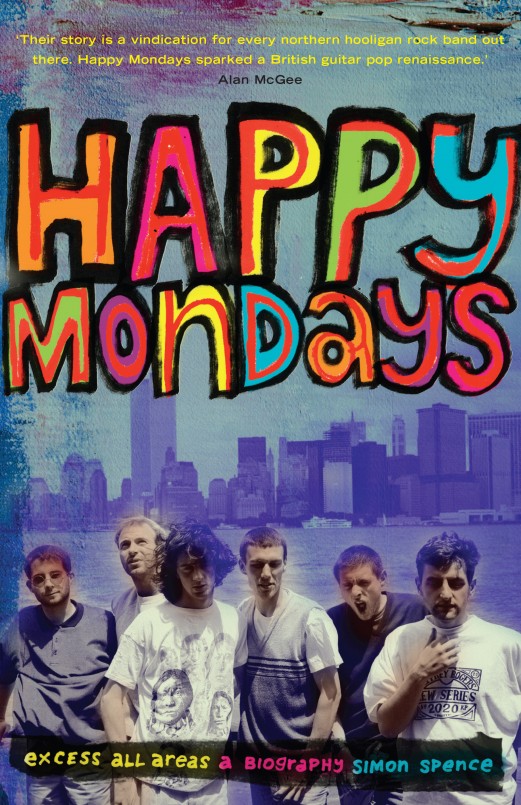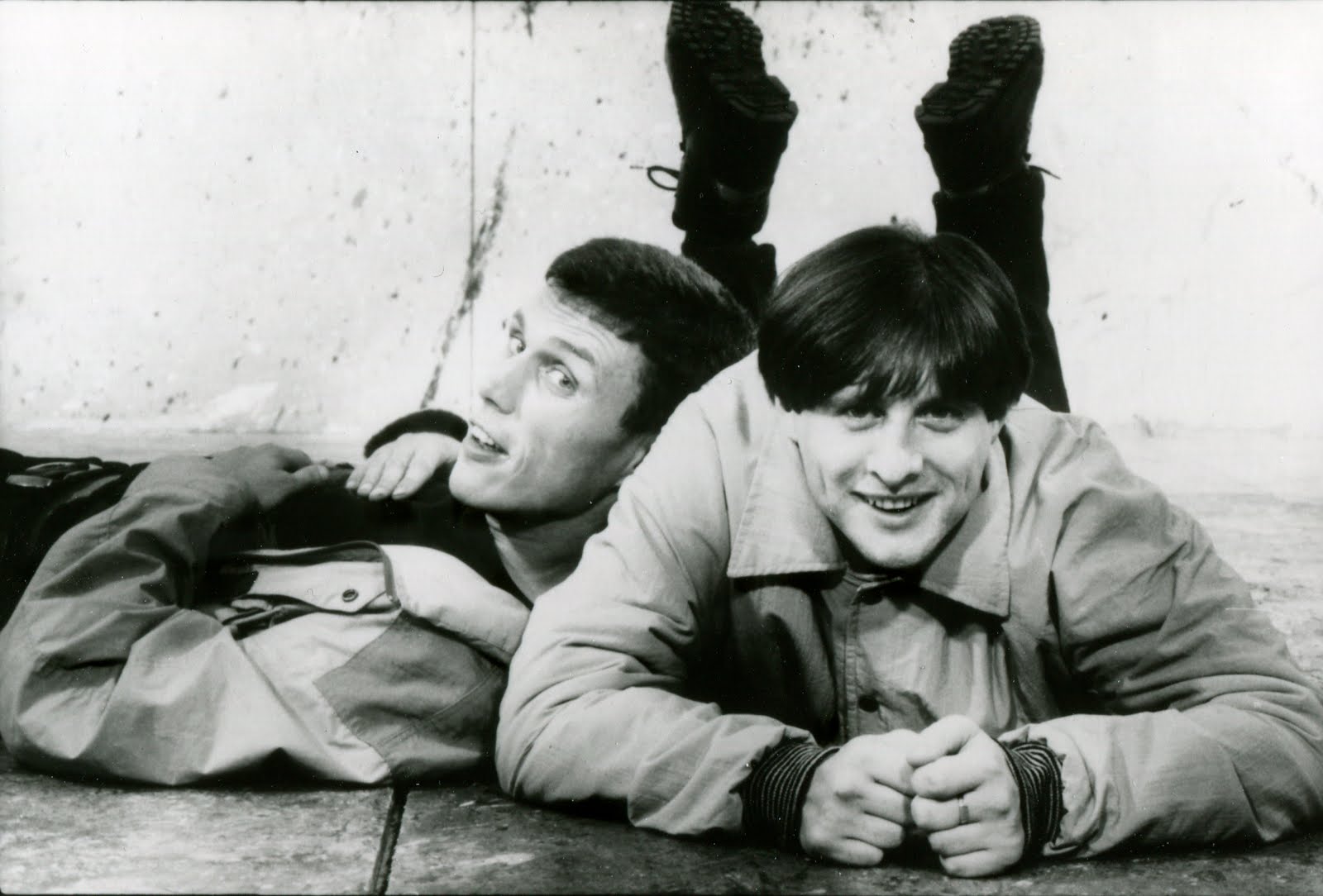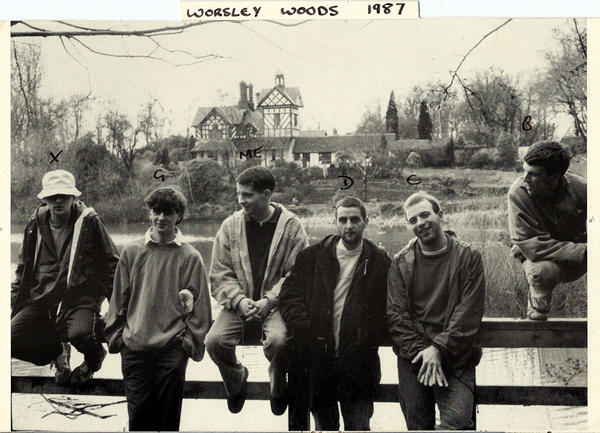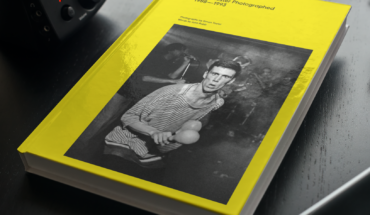Simon Spence has written books about Andrew Loog Oldham, the Stone Roses, Depeche Mode and the Donnelly Brothers . His new book, Happy Mondays: Excess All Areas presents the band’s story in full for the first time. We caught up with him to find out how he got the inside story on the Mondays…
Hello Simon. Where are you and what have you been up to this week?
I’m in Manchester and I’ve been signing copies of the Mondays book in Waterstones, splashed across a couple of pages in Q magazine, sorting out book extracts for various outlets, chuffed to be reviewed in the longstanding Man Utd fanzine Red News and uploading much stuff to the book’s website http://www.excessallareas.org.uk/ including the earliest ever Mondays recordings from way back in 1981. Hustling for publicity, basically.
Your new book Happy Mondays: Excess All Areas corrects a lot of misinformation and urban myths about the Mondays, whilst also telling the full story for the first time. How did you manage to squeeze so much into just over 300 pages?
Thanks. There’s not much fat on it is there? I guess what you’re seeing on the page is one of the last great untold rock n roll stories, unprecedented access to the band, 25 years experience in music journalism, the practice of working on several books and the encouragement of a fine editor – Robin Harvie who also worked on the Alex Ross book The Rest Is Noise. It’s certainly my best book.
How much did you have to leave out? In hindsight, is there anything you wish you’d included?
We jettisoned some of my more ‘nerdy’ material in favour of keeping the narrative flowing. Paul Ryder supplied some of the photos in the book and there was one of him with his first car – a Vauxhall Viva. There was no key and it started with a wooden chip fork. I liked that detail but it and the photo of the car were not used. There was plenty of similar minor detail not used and there were some cracking stories of excess that we lost because after a while there became no point to them, they didn’t reveal anything new or move the story forward. Even in the very final edit we lost enough material easily for three weighty 3,000-word articles. I’m just waiting for someone to ask to use that stuff. We even took out a great inter-band fight, a real belter.
You had access to Paul Ryder, Mark Day and Gary Whelan. How did the process of getting their story onto the page work and how long did it take you to write the book?
I was recommended to Paul and Gary by Keith Jobling, who was one half of The Bailey Brothers, who shot all of the Mondays’ videos. Paul lives in LA and Gary was in Toronto, so I spent a couple of months on/off interviewing them over the phone, often for a few hours at a time. There was nothing off limits. Gary introduced me to Mark and I interviewed him on/off over a few weeks at his home and, again, he was brutally honest about the band and himself. I did meet Paul Davis – and it was a pleasure – but he didn’t contribute in any normal way. Paul, Gary and Mark had transcripts of our interviews and the opportunity to correct them. Their transcripts combined were 300 pages in themselves, and there was much more if you included the transcripts of all the other people who I interviewed for the book, including Paul and Shaun’s dad Derek and the band’s two managers, Phil Saxe and Nathan McGough. I was researching, interviewing and writing for about a year. The process is boring to describe – and to watch. When I met Gary and Paul in Manchester they both said they thought I’d be blonde! I never thought of my voice as being blonde.
The book paints an accurate picture of the Mondays and dispels the widely accepted notion that they were merely some lad’s band and devoid of the artistry associated with great bands. Was this your intention from the start and did the impetus come from you or the band itself?
Yes, the sell to the band was to focus on the music, and the underlying idea was to reiterate or reinforce just what a great band they were: one of the few genuine originals. It didn’t take a genius to work out that the band must be fed up with being so often perceived as – in Gary Whelan’s words – “a bunch of fucking idiots”. Who wouldn’t be? The band had wanted, more than anything, to be regarded as game changers in the way of The Velvet Underground, and they cut four incredibly divergent and original albums between 1986 and 1992, an output that easily eclipsed the work of their contemporaries such as Primal Scream and the Roses. They were way ahead musically, fashion-wise and culturally, and yet over the years somehow all that has too often been reduced to this laddish caricature. I’m glad to have contributed to putting things in a clearer, more positive perspective.
You explore Shaun’s insecurity about his lyrics and the idea of being an ‘artist’ in the book – do you think he has now come to terms with his great gift for storytelling and wonderful turn of phrase?
He can be a very contrary character, often to his own – or the band’s – detriment in my opinion. That’s evident in the book. But it wasn’t just Shaun; the whole band was insecure. They were from the unfashionable backwaters of suburban Salford – Swinton and Worsley – and four of them had worked for the Post Office, three as postmen. They should never really have been in a band, and were always unsure about their place in the rock and roll firmament, always felt somehow dislocated. It was partly why they were so unique but also why they turned increasingly to drink and drugs, to cope with that insecurity, especially as they got more successful. Shaun is clearly a sharp, original-thinking, literate man with a deep cultural knowledge, especially in film. I hope the band can bring the best out of Shaun again. He seems to suffer sometimes under the weight of the image he created for himself, and the real man is lost in there somewhere. He reminds me of Don Arden in that respect.
Did you approach Shaun and Bez to contribute directly to the book?
Right at the start of this process I spoke to Pat Carroll, of Central Station (who designed all the Mondays’ sleeves and is Shaun and Paul’s cousin). I’d just read Shaun’s book and thought there was a big Happy Mondays shaped gap in that work. Pat said he didn’t think I’d be treading on anyone’s toes, as Shaun had obviously had his say. I wanted to focus on the band as a band, the sum being greater than the parts. I did speak to the Mondays’ manager at the time, but didn’t pursue Shaun with any conviction – I realized he wouldn’t have anything new to say to me. The same applied to Bez. He’d written his book. My one regret is that I didn’t get Paul Davis to open up, as many of my favourite stories in the book revolve around him and I think his un-predictableness, at least in the early years, gave the band a real edge. I know Bez has signed a few copies of the book. Shaun seemed put out that he wasn’t the centre of attention or involved in the deal. I hope he gives the book a chance because I know it’s right up his street.
The Mondays’ appetite for excess is legendary, but were you shocked at quite how far some of the band went at times?
Not really. I spent 10 years working with the Stones manager and producer, Andrew Loog Oldham, on his books Stoned and 2Stoned, so I wasn’t exactly green to rock n roll excess. It was more trying to understand why the Mondays went to those excesses. I was more shocked at how they treated one another and how quickly success turned the whole thing sour. Drugs obviously played a part in that, but it was more complex. I’ve tried to present the facts in the book objectively and in context – the consumption, addiction, place, time, music and money, and not make any sort of moral judgment. Having said all that, Paul did casually tell me how many thousand Ecstasy pills they had stashed in their rehearsal room at the beginning of Acid House. I do remember being quite shocked by that.
If Hollywood called and asked you to be involved in casting for a movie about the Mondays, who would you cast as the principal characters?
That movie’s actually being written. There’s a band with a singer who reminds me a lot of the young Shaun: Fat White Family. You could – and should – probably hologram Tony in nowadays. Whenever I think of New Order I think of the film The Good, the Bad and the Ugly, so maybe they could score and star as themselves in a remake.
What are your favourite Mondays songs?
That’s put me on the spot. ‘The Egg’: first song they wrote that was expansive. I also think in the lyrics Shaun is talking about breaking into a house looking to steal a cardigan, which is really something. But then again if you want an early period song you’d struggle to beat ‘Little Matchstick Owen’ off their first album: that is the band at their absolute tautest and a really, really dirty track with such great singing. I’d choose ‘Fat Lady Wrestlers off Bummed’, and I’d concur with Tony Wilson – it’d be interesting to see those lyrics written down in a book. Obviously ‘Wrote for Luck’ off that album is the Meisterwerk, but the subsequent Madchester EP (all four tracks) – the final collaboration between the Mondays and producer Martin Hannett – is a beautiful cacophony of experimental sounds. I’ll skip the remixes, and choose ‘God’s Cop’ from the Oakenfold and Osborne period – for the guitar and the lyrics. I’ve also got a soft spot for ‘Monkey in the Family’ and ‘Sunshine & Love’ from the Yes, Please! album – in fact anything off that album live is a real winner, the rhythms are very sophisticated and so heavy.
Your book Stone Roses: War and Peace is the definitive text on the band. Unfortunately, the project changed in the middle of the writing process when Reni’s involvement ceased…
Cheers, and yes, the work started with Reni and that allowed me access to everyone in the Roses story. About 130 interviews into the process, it was eyes down for the full house and then I realized the four of them weren’t meeting up to talk about the book. Reforming was something that there’d been absolutely zero chance of when the book started. It was a bit of a tense situation for while. But I’m proud of the work. I’ve bumped into Ian and Mani subsequently and they seemed happy with it.
Any plans to write an updated version to cover the reunion and new album if/when it’s released?
The book is with Penguin, a really impressive publishing house, and there undoubtedly will be a new edition in the future. A second edition of the paperback (which followed the 2012 hardback in 2013 and did have an extra chapter about the reunion shows) came out recently and sales of the various versions of the book are now close to 30,000.
If you could collaborate on a book with any musician (alive or dead) who would you choose?
I’m more interested in cultural phenomena than individual musicians. I always thought Andrew Loog Oldham was the biggest catch. Phil Spector would be interesting. It’s always nice to hear ‘River Deep Mountain High’ on the radio. I’ve been listening back the first Wu-Tang album, reminds me of the back yard in Brixton. I do keep getting asked about Pete Doherty and he did invite me down to spend a weekend with him … but I’m going to say Liam Gallagher on the off chance.
What’s on the horizon for you? Have you got your next book planned yet?
I have. I’m in the process of signing a deal on it, so can’t say too much. It’s about a band that really was a phenomenon. I’ve also been working for a while, very, very loosely, with Factory Records co-founder Alan Erasmus – who is actually out in Sierra Leone right now – on trying to get him to do a book.
Thanks for your time, Simon. All the best with the book, it’s a great read and deserves a wide audience.
Cheers, I think it’s a book that will stay around for a while.
Happy Mondays: Excess All Areas by Simon Spence is published by Aurum Press and is available now.
Happy Mondays will headline the Shiiine Weekender @ Minehead Arena next year. Get your tickets here
Paul Sng









